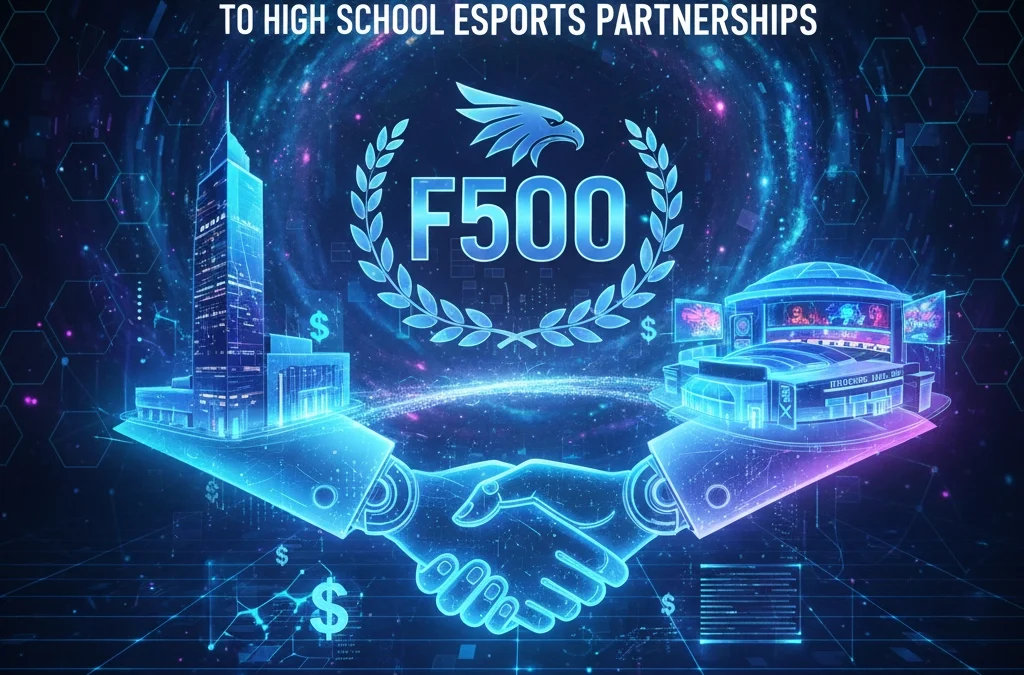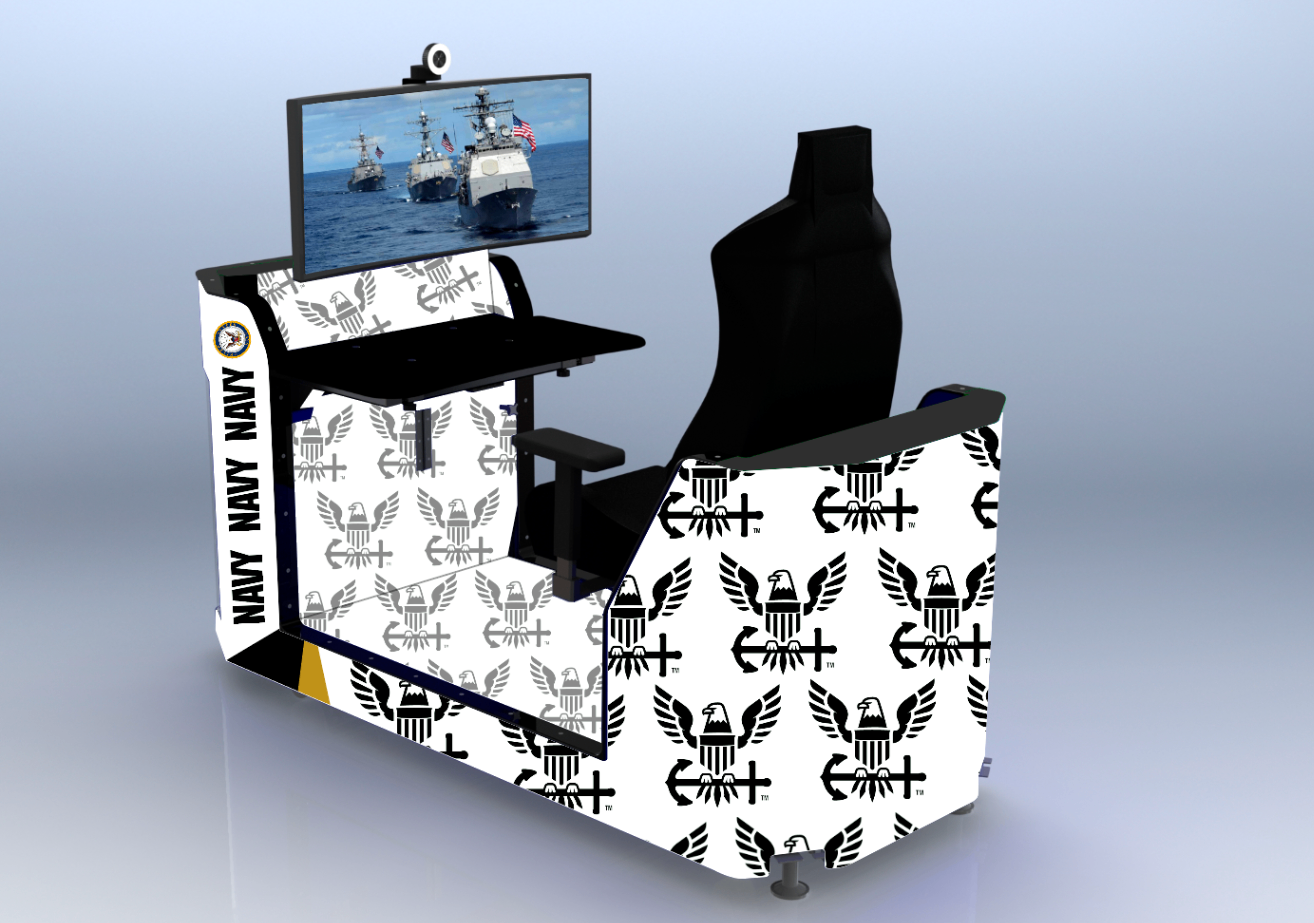The landscape of corporate sponsorship is rapidly evolving, and Fortune 500 executives who recognize the transformative potential of high school esports partnerships will position their brands at the forefront of the next generation's attention economy. As we advance through 2025, the convergence of educational technology, competitive gaming, and workforce development creates unprecedented opportunities for strategic corporate engagement with America's most digitally native demographic.
The Market Reality: Beyond Traditional Sports Sponsorship
High school esports has transcended its experimental phase to become a sophisticated ecosystem that rivals traditional athletics in structure, engagement, and educational value. The spring 2025 season alone features over 8,000 participating schools across three competitive tiers: Intramural programs focused on student development, Major leagues offering comprehensive game lineups for broader participation, and Premier divisions representing the pinnacle of scholastic esports competition.
This tiered approach provides Fortune 500 companies with unprecedented flexibility in partnership scope and investment levels. Unlike traditional sports sponsorships that typically require significant financial commitments for minimal differentiation, esports partnerships offer scalable engagement models that can align precisely with corporate objectives and budget parameters.
The demographic reach is particularly compelling for forward-thinking executives. These programs directly engage Gen Z and Gen Alpha students who will comprise 40% of the consumer market by 2030. More importantly, high school esports creates authentic touchpoints with future decision-makers, influencers, and industry leaders during their formative years.
Strategic Partnership Models That Deliver ROI
Equipment and Infrastructure Sponsorship
The most direct partnership avenue involves supporting the technological infrastructure that enables these programs. Schools require significant investments in gaming equipment, streaming capabilities, and network infrastructure. Fortune 500 companies in technology, telecommunications, and consumer electronics sectors can leverage these partnerships for both corporate social responsibility initiatives and strategic product placement.
Consider the long-term brand loyalty implications: students who learn on your equipment, compete using your platforms, and stream through your services develop lasting preferences that extend well beyond graduation. This creates a organic pathway to lifetime customer acquisition that traditional advertising cannot replicate.
Prizing and Achievement Recognition Programs
Corporate partners like Chipotle Mexican Grill have demonstrated the effectiveness of prizing programs in the ECAC Esports Spring 2025 season. These partnerships provide immediate brand exposure while supporting student achievement and motivation. The key advantage lies in the celebration context: your brand becomes associated with success, accomplishment, and recognition during pivotal moments in young people's competitive journeys.
Educational Integration Partnerships
The most sophisticated approach involves aligning corporate expertise with academic objectives. Modern esports programs explicitly promote STEM education, digital media skills, leadership development, and wellness initiatives. Fortune 500 companies can develop curriculum partnerships that provide genuine educational value while building deep brand affinity and demonstrating thought leadership in workforce development.
Competitive Advantages Over Traditional Sponsorships
Data-Rich Engagement Analytics
Unlike traditional sports partnerships, esports sponsorships provide sophisticated data collection and engagement opportunities. Digital platforms offer detailed analytics on viewer engagement, streaming metrics, social media interaction, and demographic insights. The seven-week competitive seasons with structured gameplay create sustained engagement periods rather than brief event-based exposure.
Geographic and Demographic Scalability
High school esports transcends traditional geographic limitations through online competition formats. This allows national brands to achieve comprehensive market penetration while supporting local educational initiatives. The digital-native format enables simultaneous engagement across multiple markets without the logistical complexities of physical venue partnerships.
Authentic Educational Context
The educational framework of high school esports allows corporate partners to position their involvement as workforce development investment rather than purely marketing expenditure. This educational context provides authenticity that resonates with both students and parents, creating favorable brand associations that traditional advertising struggles to achieve.
Implementation Strategy for Maximum Impact
Game Selection and Brand Safety Alignment
Successful partnerships require strategic alignment with appropriate game titles. The most common selections in educational environments include Rocket League (physics-based and non-violent), League of Legends (strategic team mechanics), Valorant (tactical communication), and Minecraft Education Edition (creative collaboration). Partners should align their involvement with games that reinforce their brand values and target demographic preferences.
Seasonal Planning and Competitive Calendar Integration
The spring 2025 season introduces innovative elements like Marvel Rivals (team-based gameplay), Zone Wars (fast-paced Fortnite competition), and Bed Wars (collaborative Minecraft mode). Forward-thinking partners engage early in seasonal planning to maximize integration opportunities and ensure optimal brand positioning throughout competitive cycles.
Technology Integration Opportunities
Platform solutions that streamline event management and enhance player development create operational value for schools while providing sustained brand exposure. Fortune 500 companies can develop proprietary tools, applications, or services that become integral to program operations, ensuring consistent brand engagement throughout the academic year.
Workforce Development and Talent Pipeline Creation
Perhaps the most compelling long-term benefit involves talent pipeline development. High school esports programs create direct pathways to collegiate competition and professional careers in gaming, technology, digital media, and related industries. Corporate partners can establish mentorship programs, internship opportunities, and scholarship initiatives that identify and develop future talent while building lasting relationships with emerging industry leaders.
The skills developed through competitive esports: strategic thinking, rapid decision-making, team coordination, digital communication, and performance under pressure: align precisely with modern workforce requirements. Companies that recognize and support this skill development gain preferential access to exceptional talent pools.
Measuring Success and Optimizing Investment
Effective measurement requires both traditional marketing metrics and innovative engagement indicators. Brand awareness, social media engagement, and website traffic provide baseline measurements, while program-specific metrics like student participation rates, academic performance correlation, and post-graduation career tracking offer deeper insights into partnership effectiveness.
The most successful partnerships establish multi-year commitments that allow for relationship development and compound brand benefits. Students who experience positive corporate partnerships during high school often maintain favorable brand associations throughout their professional careers, creating lifetime value that far exceeds initial investment costs.
The Competitive Imperative: Acting Before Market Saturation
The high school esports partnership landscape remains relatively uncrowded compared to traditional sports sponsorship markets. Early adopters benefit from premium partnership positions, exclusive category rights, and first-mover advantages that become increasingly difficult to secure as more Fortune 500 companies recognize these opportunities.
Companies that establish authentic, value-driven partnerships now will benefit from organic growth in program participation, competitive sophistication, and audience engagement. The alternative: entering a saturated market at significantly higher costs: represents a strategic disadvantage that forward-thinking executives should actively avoid.
The convergence of educational technology, competitive gaming, and workforce development creates a unique moment for Fortune 500 companies to establish meaningful relationships with the next generation of consumers, employees, and industry leaders. High school esports partnerships offer scalable, measurable, and authentic engagement opportunities that traditional sponsorship models cannot replicate.
The question for corporate executives is not whether to engage with this growing ecosystem, but how quickly and strategically they can establish partnerships that deliver both immediate marketing benefits and long-term competitive advantages. The companies that recognize and act on these opportunities will build lasting relationships with tomorrow's decision-makers while their competitors struggle to catch up in an increasingly crowded marketplace.





